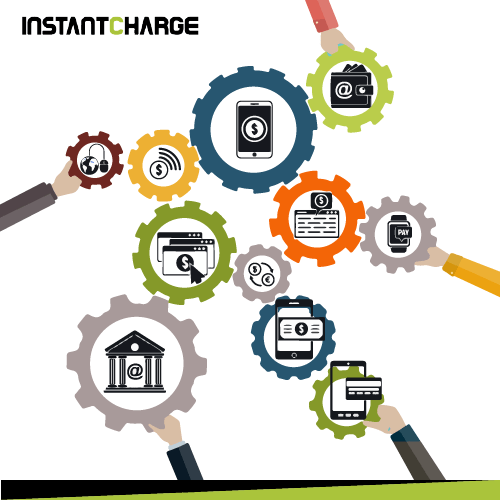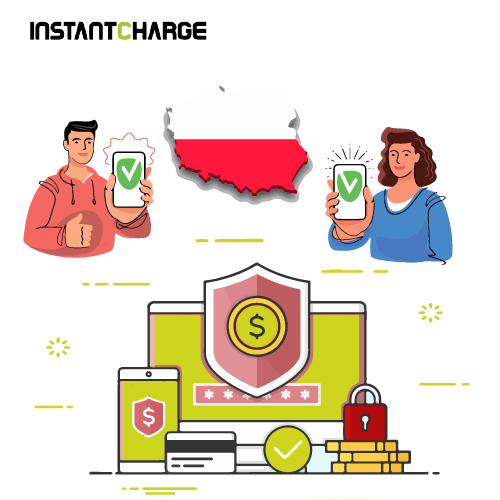Various Methods of Payment Gateway Integration On Websites
Accepting an online payment is never a hassle-free task for any merchant. The world is moving toward a cashless economy and the new demand for accepting payments with social distancing forces every business to accept online payments.
A suitable payment gateway integration is essential to accept online payments for your online business. As the demand for online shopping is growing daily, merchants worldwide try to offer their customers more flexible, convenient, and secure experiences.
As a merchant, you ought to provide your clients with a secure, quick, and simple payment method whether you run an eCommerce site or are just maintaining your online presence. Your client’s and company’s needs must be met by your chosen payment method. It must be secure against fraud, accept a wide range of payment options, be user-friendly, and work with your platform.
In accepting online payment, payment gateway integration is vital in keeping transactions safe and secure and making customers happy.
Here, you will learn the way to payment gateway integrations Poland.

What are Payment Gateways?
Before discussing the payment gateway integration methods, we must understand what payment gateways are.
In a simple sentence – A payment gateway is a bridge between the websites and the payment processor. It securely transfers the customer’s sensitive information between merchant websites and payment processors.
Generally, it’s an online replica of the actual point-of-sale terminals you see in retail establishments. The credit card data, expiration date, and CVV code are all encrypted by a payment gateway to ensure transaction security and safeguard your website from fraud.
What is a Merchant Account?
The business owner should have a merchant account to accept online payment. A merchant account is a type of bank account that is used to send and receive digital payments. Acquiring bank offers the merchant account.
Having a merchant account is also challenging as not all acquiring banks offer their services to all types of businesses. On the other hand, the merchant should also submit lots of documents and maintain transparency between their acquiring bank and business model.
Acquiring banks also charge for their services’ financial risks and regular fees.
Payment Gateway vs Payment Processor
Before moving to the payment gateway integration methods, you need to know the difference between a payment gateway and a payment processor.
The key responsibility of the payment gateway is to collect the card information and securely send it to the payment processor, which is the first step of the transaction cycle.
The payment processor securely sends the information and pertinent buyer data from the customer’s bank to the merchant bank and vice-verses; when a successful transaction, the payment gateway notifies the buyer of its outcomes, including approval or rejection statuses.
Different Methods of Payment Gateway Integrations
Let’s go over the four most popular payment gateway integration methods for an online store: hosted, self-hosted, API or non-hosted, and local bank integration.
Hosted Payment Gateways –
While making the payments, the payment service provider redirects the customers to the third-party checkout systems. This type of payment gateway is called the hosted payment gateway. It means that the customer has to shift to some other page to complete the checkout process.
Here, the customer is directed to an externally hosted payment page via a hosted solution to handle the fee from a customer to the merchant. Once the confirmation is done, the customer returns to the website. Then the checkout process is completed.
The most popular hosted payment gateways are – PayPal, Stripe, and Amazon Pay.
Advantage –
• It does not require PCI compliance.
• The entire procedure is entirely adaptable.
• It offers plug-and-play plugins for online businesses.
• The integration process is relatively easy.
• The service provider is in charge of data protection.
Weaknesses –
• It redirected the customer to the external site, which is not comfortable for most customers.
• It has a limited brand option.
• The payment service provider handles the whole process.
Non-Hosted Payment Gateways or apis –
Non-hosted payment gateway is also known as APIs or onsite payment gateway. It allows the customer to complete the checkout process on an e-commerce site using API (Application programming interface).
With this payment gateway integration, the customer does not redirect to another page to complete the transaction process. Using this integration method, the merchant can manage the whole checkout page from beginning to end in a hassle-free manner.
Instantcharge offers non-hosted payment gateways. Merchant can easily use their brand name on the checkout page. You can get all the solutions in one place with Instantcharge.
Advantage –
• Merchant can easily modify the checkout page according to their needs.
• It offers faster checkout operations.
• It is device friendly – across mobiles, tablets, and so on.
Weakness –
• It required technical support and maintenance.
• Merchant has to take responsibility for covering all the data protection concerns.
Self-Hosted Gateways
The self-hosted gateway is an optional, containerized variant of the managed gateway that comes standard with every API Management service. Hosting your APIs and gateways in the same environments is helpful. As a merchant, you can improve API traffic flow and meet API security and compliance standards by using the self-hosted gateway.
This approach is probably the best fit if you expect complete control over every customer’s payment. End-to-end encryption allows all transactions to be accommodated on a website using the self-hosted integration method before being sent to the gateway. The most popular self-hosted gateways are Shopify payments provider by Stripe and Quickbooks Commerce’s B2B.
Advantages-
• The merchant has complete control over the payments.
• Merchant can easily customize their style according to their needs.
• Suitable for user experience.
Weaknesses –
• There is no technical support for it.
• There is the possibility that system failures take place as the checkout and payment processes happen in the same place.
• It is required that you adhere to PCI.
Local Bank Integration –
Here, in this payment gateway integration method, merchants shift funds locally to the customer bank. Once the payment process is completed, the customer returns to the landing page. The landing page indicates a successful money transfer.
Advantage –
• This payment gateway integration is the best option for small and medium-sized businesses that need a single payment.
Weaknesses –
• Due to the basic features, it has a limited user experience. For example – The customer won’t be able to return funds.
How to Integrate the Payment Gateway On Your Websites?
The payment gateway integration process depends on your selected gateways. However, there are some common steps.
For example – If you select the hosted payment gateways, you need to get an SSL certificate, and also you have to connect your websites with the payment gateways. As a merchant, you must obtain the gateway’s credentials, such as merchant ID, MWS access key, secret key, etc.
If you select the non-hosted payment gateway poland, then your priority is security. You should make sure that your security measures are adequate. However, you should be able to do this by utilizing some of the robust APIs and widely accessible modules. You also want to confirm that mobile phone customers can use your payment gateway and that it accepts various payment methods.
Final Thoughts –
Now, you know about the different methods of payment gateway integrations. As a merchant, you can understand that using an unsuitable payment gateway could turn off your customers and result in a loss in your business. Check out what your competitors are using and gauge their efficacy before choosing a payment gateway so you can give your customers the best choices.
A third-party payment gateway poland is the best option for small businesses regarding integration methods. For a more prominent market, it is better to use a customized version like instantcharge.





